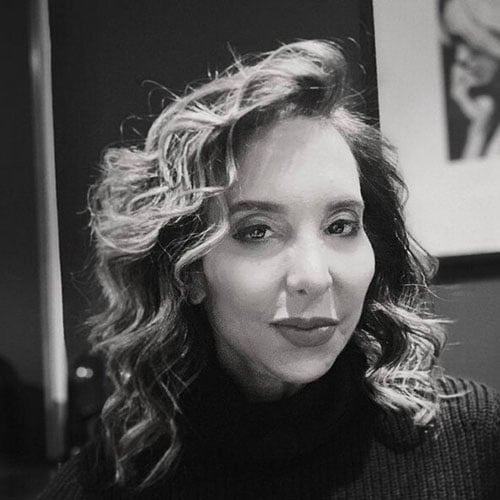
It is written in the Talmud, “Ten measures of beauty descended upon the world, nine were taken by Jerusalem.”
It is no surprise that many feel a visceral love for Jerusalem. The city, which has been destroyed twice and attacked 52 times, still emits a sacred beauty, a beauty that transcends religion and politics.
Most Jews feel this visceral connection before we have ever visited Israel, before we even understand our historical, cultural and religious connection to the land. The love we feel for Israel is not complicated or questioning. Rather, it is like the love we feel for our children, our soulmates — unconditional and eternal: “I am my beloved’s, and my beloved is mine.”
In the fall of 2013, I reluctantly joined Facebook to promote a book on “deep beauty,” beauty so profound that it touches you not just emotionally but spiritually. Each day I posted art and design that moved me, hoping to nudge the art world back to a deeper appreciation of beauty. I never posted about politics, although many of my art friends did.
When the Hamas war broke out in the summer of 2014, I (naively) expected these left-leaning justice-warrior friends to see which side justice was on. I couldn’t have been more wrong.
No matter what Hamas did, they blamed Israel — precisely what is happening today.
I started to defend Israel, but I also decided that maybe what was needed was for the world to again be touched by its sacred beauty. For more than a decade, the art world had only “allowed” sad, dreary, conflict scenes to be shown.
As the photo-book world follows the art world, there were many rejections before Skyhorse, a small publishing house, agreed to publish “Passage to Israel.” I chose 200 images to represent Israel, images from a wide variety of photographers. My primary requirement: The images were of deep beauty — images that would touch the soul.
Somewhat miraculously, I was introduced to Anderson Contemporary Gallery in New York City. Ronnie Anderson fell in love with the images; she didn’t care that she wasn’t supposed to love them.
And so the exhibition “Passage to Israel” opened in New York in the fall of 2016, with Matisyahu headlining. After its NYC stop, it traveled around the New York area before opening in Ariel, Samaria. It then went on to the Jerusalem Theater, Jaffa and Haifa.
The reaction has been extraordinary: The Israeli friend living in the U.S. who sat down and cried when she went through the book. The innumerable notes saying, “Thank you for reconnecting me to my love for Israel.” The many people who simply said, “I forgot that Israel is far more than just the conflict.”
Most shocking to me has been the reaction of the Arab world. When I created a Facebook page for “Passage,” I braced myself for daily hate and ugliness. Instead, more than a third of the likes are from Arabic names, many of whom heart and share the photos.
Most shocking to me has been the reaction of the Arab world.
Can deep beauty be the sacred bond?
The ultimate test was back where I started, with the art world. The Sagamore Hotel in the South Beach area of Miami Beach — the center of the U.S. art world — chose “Passage” as the centerpiece of a three-month #Peace70 exhibition. The Sagamore is now owned by Israeli Ronit Neuman, but the idea was the brainchild of curator Sebastien Laboureau, who branded it “art as the crosswalk for peace.”
A snowstorm prevented me from making it to the opening in the beginning of March, but from all accounts it was quite epic. Two Florida mayors spoke; major collectors and “tastemakers” roamed the stunning Sagamore, entranced by images of Israel. As one art patron put it, “I haven’t seen the Sagamore this packed since Art Basel 2012.”
As happy as I am about “Passage’s” ability to touch souls, it saddens me to see that, four years later, we’re still dealing with the same desire to believe Hamas’ lies, no matter how far-fetched. A week into the Gaza turmoil, Hamas flew a swastika between two Palestinians flags. As of yet, no mainstream Western journalist has reported it.
Ultimately, the last two sentences of the “Passage” book still stand: “Israel is indeed a mirror to one’s soul. Those who see the beauty, who stand up for the truth, who understand the meaning, will never regret where they stood in this moment in history, when silence is not an option.”
Am Yisra’el Chai.
Karen Lehrman Bloch is an author and cultural critic.























 More news and opinions than at a Shabbat dinner, right in your inbox.
More news and opinions than at a Shabbat dinner, right in your inbox.